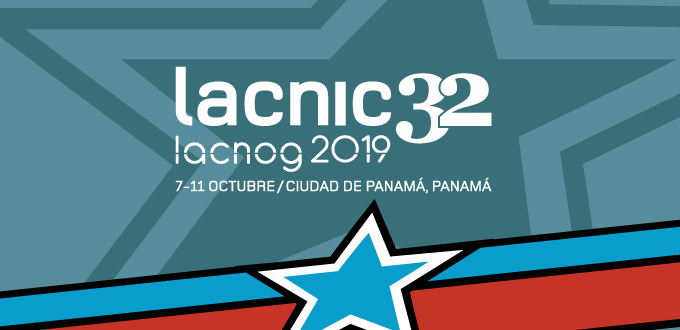LACNIC 32 Highlights: Routing Security, DNS, Root Servers in the LAC Region
18/09/2019

The Panama meeting will offer a great opportunity to learn about new projects in the areas of security, privacy and other relevant technical issues that will be discussed by the different panelists and presenters during LACNIC 32 LACNOG 2019.
The Internet technical community will have the chance to attend the activities best suited to their interests, choosing from a rich and varied agenda, with the possibility of participating in person at the Hard Rock Hotel Panama or following the event live online.
One of the most attractive technical panels is titled “Evolution of DNS Privacy and Security,” one of the basic pillars supporting Internet operation. This panel will take place on Tuesday 8 October at 9:45 (local Panama time) and will address one of the issues that has long been a concern for the technical community: the creation and implementation of Domain Name System Security Extensions or DNSSEC.
The next day at 17:15 (local Panama time), Hugo Salgado will present a study funded by LACNIC to determine the impact that the installation of root server copies across Latin America and the Caribbean supported by the +Raices program has had on the region. Titled “Use of DNS Root Servers in LAC,” the study attempts to determine the importance of these root servers for the stability and resilience of the DNS system in the region.
Within the framework of FORT, a routing security initiative by LACNIC and NIC.MX to strengthen routing security and protect Internet freedom in the region, Augusto Mathurin will share an analysis of recent routing events and incidents in Latin America. The presentation —which will be held on Wednesday at 10:30 (local time)— will analyze the statistics prepared by the project on routing security incidents over the past two years. Mathurin’s work contains information gathered from various sources, such as the BGP Stream portal, which provides information about suspicious routing system events. This study gathers and shares different statistics, classifying the events that have occurred over time according to the country where the corresponding autonomous systems are located.
In addition, Gerardo Pías will present tools that can be used to view routing information and understand and detect routing incidents. Pias will share tools to help detect, mitigate and make informed decisions when faced with a routing incident and generally contribute to improve our knowledge of the network and enhance its security.
On Friday 11 October at 14:00 (local Panama time), Ariel Weher will moderate the panel on “Technologies for Small ISPs.” The panelists will discuss the difficulties faced by small ISPs, among them the lack of access to CDNs, which typically install their services with major providers, thus generating major cost differences. Other topics will include the challenges of dealing with application and device manufacturers under the same conditions as the larger companies.
Click here to see the complete event agenda.
Anyone interesting in participating in the activities described above but unable to join us for the event in Panama can follow them online, as live streaming will be available here.
We also invite you to read the LACNIC Community Code of Conduct, a guide containing standards of conduct that apply to everyone involved in the different participation spaces.